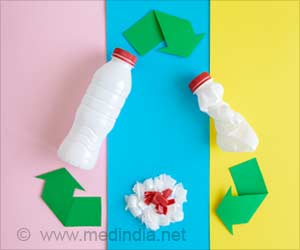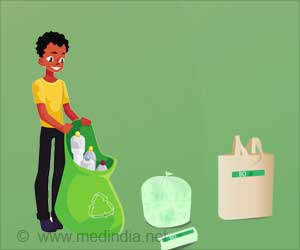World Environment Day 2022: Plastic pollution has become a major problem in recent years. Plastic never decomposes; it breaks down into tiny particles.

‘Plastic pollution hurts the environment that may not appear to affect us directly, but it harms our mother earth and our health.’





Anjana Pasi, Director, MiniKlub says "It’s just a small step that we are taking towards a sustainable nation. The collection made from recycled plastic is completely safe and skin-friendly. It is good for the environment since we are making new products from the old products which go into the garbage or are of no use to us."
Plastics & Environment
She goes on and explains the process of how PET bottles can be recycled and used to produce high-grade fibers. "The pure version of polyester textile is the ’Recycled Polyester’. Recycled polyester is known to use PET as the raw material, the same material that is being used in clear plastic water bottles, and recycling it to make the fabric prevents it from going to landfills. Below are the steps involved in the production process of recycling the PET bottles:The first and foremost step involves collecting PET bottles being sterilized, dried, and later squeezed into small chips. The chips are then heated and passed through a plate called a spinneret to form strings of yarn. After that, this yard is wound up in spools, and the fiber is then passed through a crimping machine in order to get a fluffy texture. Finally, the yarn is dyed and knitted into polyester fabric."
She also adds, "About 6 bottles are being recycled to make a T-shirt, 6 bottles to make a bodysuit, nine bottles to make a sleepsuit, five for a legging and nine for a dress, PET is just as good as virgin polyester, but takes fewer resources to make."
Source-IANS









